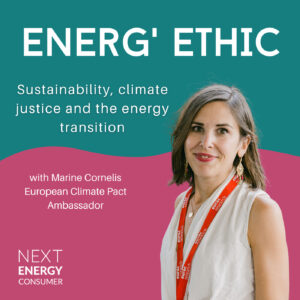As Europe forges ahead with its ambitious green transition, the spotlight turns increasingly towards demand-side flexibility (DSF) as a transformative solution to enhance the efficiency of the energy grid. Demand-side flexibility—the ability of consumers to adjust their energy usage in response to supply fluctuations, especially from renewable sources—stands as a cornerstone of Europe’s strategy to expedite the shift towards sustainable energy while offering economic benefits to consumers through reduced energy costs. However, as identified by Louise Sunderland and Sophie Yule-Bennett of RAP, the journey to universalize the advantages of DSF is fraught with challenges, notably in ensuring equitable access for all community strata, including the most vulnerable.
Bridging Energy Justice and Demand-Side Flexibility
The latest episode of the Energ’Ethic podcast delves into the intricate relationship between energy justice and demand-side flexibility. Energy justice aims to secure equitable access to energy resources and their accrued benefits for everyone. Integrating energy justice with DSF successfully involves navigating complex sociopolitical landscapes and technical intricacies. Access and benefit barriers differ significantly among various societal groups. For instance, lower-income households may not have access to smart meters or energy-efficient housing, which is crucial for DSF program participation. Moreover, the potential for variable electricity pricing poses a risk, deterring those apprehensive about unpredictable energy costs.
The Role of Home Energy Management in DSF
Our discussion on Energ’Ethic also highlights home energy management as a practical example of demand-side flexibility. By intelligently scheduling appliance operations, such as washing machines or heating systems, to coincide with times of lower demand and higher renewable energy availability, households can significantly reduce their energy footprint and costs. This approach contributes to environmental sustainability and offers a pathway to economic savings, illustrating the dual benefits of DSF.
Overcoming Obstacles in the Energy Transition
Achieving the energy transition goals, complemented by DSF initiatives, is not without its technical and policy challenges. A key issue is matching the intermittently abundant supply of renewable energy with consumer demand. The legacy of fossil fuel subsidies underscores the need for energy market reforms prioritising efficiency and optimization. The Energ’Ethic episode explores how interdisciplinary collaboration can overcome these challenges, emphasizing the role of innovative technologies and consumer education in promoting DSF adoption.
Consumer Engagement Through Innovations and Incentives
Despite the clear advantages of demand-side flexibility, encouraging widespread consumer participation remains a hurdle. The podcast episode examines innovative strategies, such as financial incentives for energy use during off-peak hours, to attract consumer interest in DSF programs. However, these initiatives require careful regulation to avoid the pitfalls seen in events like the Texas energy crisis. Establishing trust through clear communication, regulated tariffs, and robust consumer protections is essential for fostering acceptance and participation in DSF, particularly among vulnerable groups.
Collaborative Efforts Towards an Inclusive Energy Future
The episode underscores the importance of collaborative efforts across sectors to integrate social equity and justice into demand-side flexibility design. Achieving a demand-focused, equitable energy system calls for concerted action from policymakers, energy companies, and consumer advocates. By ensuring that technological advancements and DSF benefits are accessible and fair to all demographics, Europe, and Africa, as it was also the main goal of the EURICA project, can move closer to a truly inclusive energy future.
In this Energ’Ethic episode, we tackle the multifaceted concept of demand-side flexibility, exploring its potential to revolutionize Europe’s energy landscape, the challenges of ensuring social inclusion, and the strategies for engaging consumers in sustainable energy practices. As Europe advances towards a decarbonized energy system, the principles of DSF, backed by inclusive and equitable policy frameworks and technological solutions, will be pivotal in ensuring no one is left behind.
Listen to the full episode to gain deeper insights into how demand-side flexibility is shaping Europe’s energy transition and the critical role of social inclusion in this transformative journey.



